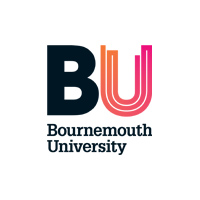Bob Ainsworth MP spoke to Politics and Media students at Bournemouth University as they look to study the EU Parliamentary elections.
Mr Ainsworth, a Visiting Fellow within BU’s Media School, set an online campaign task for five groups of first year students aimed at mobilising young voters in the South West region for each of the main parties: Labour, Conservative, UKIP, Liberal Democrat and Green Party.
Labour lost their MEP in the 2009 election and the Green Party missed their target for an MEP by less than one percent, so a small surge in voter registration and engagement could easily tip the balance for any of the parties next month. The students discussed what they saw as the main weaknesses and strengths of the existing online campaigns, which in their view were all weak and not currently aimed at young potential voters.
Shortly afterwards in a studio interview four students Elina Kuusio, Alan Andrews, Jack Aspinall and Joanna Poulton (pictured) grilled Mr. Ainsworth, Secretary of State for Defence in the last Labour government, on his views on what the European Union offers young people, UKIP and the likely outcome of the elections.
Parts of this televised debate will be broadcast during the Media Schools coverage of the 2014 EU Parliamentary elections on the 22nd May between 10pm and 1am. Bob Ainsworth is returning to Bournemouth University to judge their campaigns on the 8th May when he will also be contributing to a student organised screening and debate on Belarus.
In an effort to engage young voters on May 15th, Bournemouth University will be hosting a hustings in the Allsebrook lecture theatre from 7pm where prospective MEPs from all the parties will be addressing students and local residents. Politics students will be attending this and learning more about this important election.
 Bournemouth University
Bournemouth University Whilst the world’s attention is focussing on a number of political events across the globe, BU is obviously concerned for how this is affecting students studying here who come from these regions.
Whilst the world’s attention is focussing on a number of political events across the globe, BU is obviously concerned for how this is affecting students studying here who come from these regions.